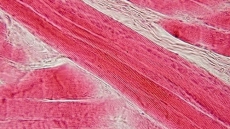Needles too tiny to be seen with naked eyes can soon deliver drugs to specific areas relevant to two of the world's leading eye diseases - glaucoma and corneal neovascularisation, researchers report.
By targeting the drugs only to specific parts of the eye instead of the entire eye, researchers hope to increase effectiveness, limit side effects and reduce the amount of drug needed.
“We are developing different microneedle-based systems that can put the drug precisely into the part of the eye where it is needed. In many cases, we hope to couple that delivery with a controlled-release formulation that would allow one application to treat a condition for weeks or months,” explained Mark Prausnitz, a Regents' professor in school of chemical and biomolecular engineering at Georgia Institute of Technology.
The micro-needles range in length from 400 to 700 microns.
The research was done using animal models and could become the first treatment technique to use micro-needles for delivering drugs to treat diseases in the front of the eye.
“The ultimate goal for us would be for glaucoma patients visiting the doctor to get an injection that would last for the next six months, until the next time the patient needed to see the doctor,” added Prausnitz.
In corneal neovascularisation, corneal injury results in the growth of unwanted blood vessels that impair vision.
To treat it, researchers have developed solid micro-needles for delivering a dry antibody-based drug compound that stops the vessel growth.
Both potential treatments would require additional animal testing before human trials could begin.
The research was reported in the journal Investigative Ophthalmology & Visual Science.





